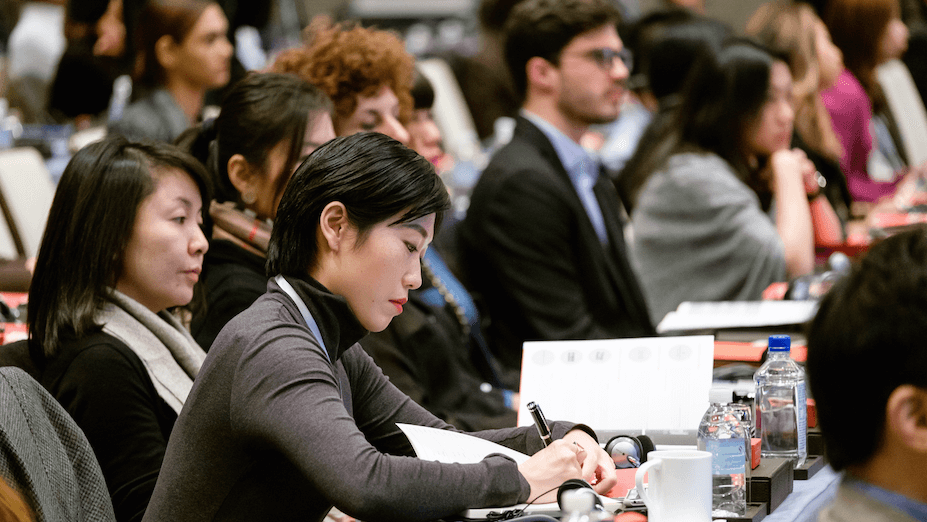
Last week Luxury Society and Digital Luxury Group hosted the second edition of the Luxury Society Keynote event at the Four Seasons Hotel Pudong in Shanghai. Guests were delighted with a dynamic afternoon of keynote speeches, exclusive industry data releases, insider perspectives, and engaging dialogue with industry experts and professionals.
The event gathered executives from Baidu, Baume & Mercier, Bulgari, Dior, LVMH, Mei.com, Michael Kors, Nars, Sephora, Swarovski, Shiseido, Qeelin, UCO Cosmetics, Yixia Tech, and many more speakers, panelists, and delegates from the luxury and digital industries. Highlights from the event include:
New Technologies and New Opportunities for Luxury Brands
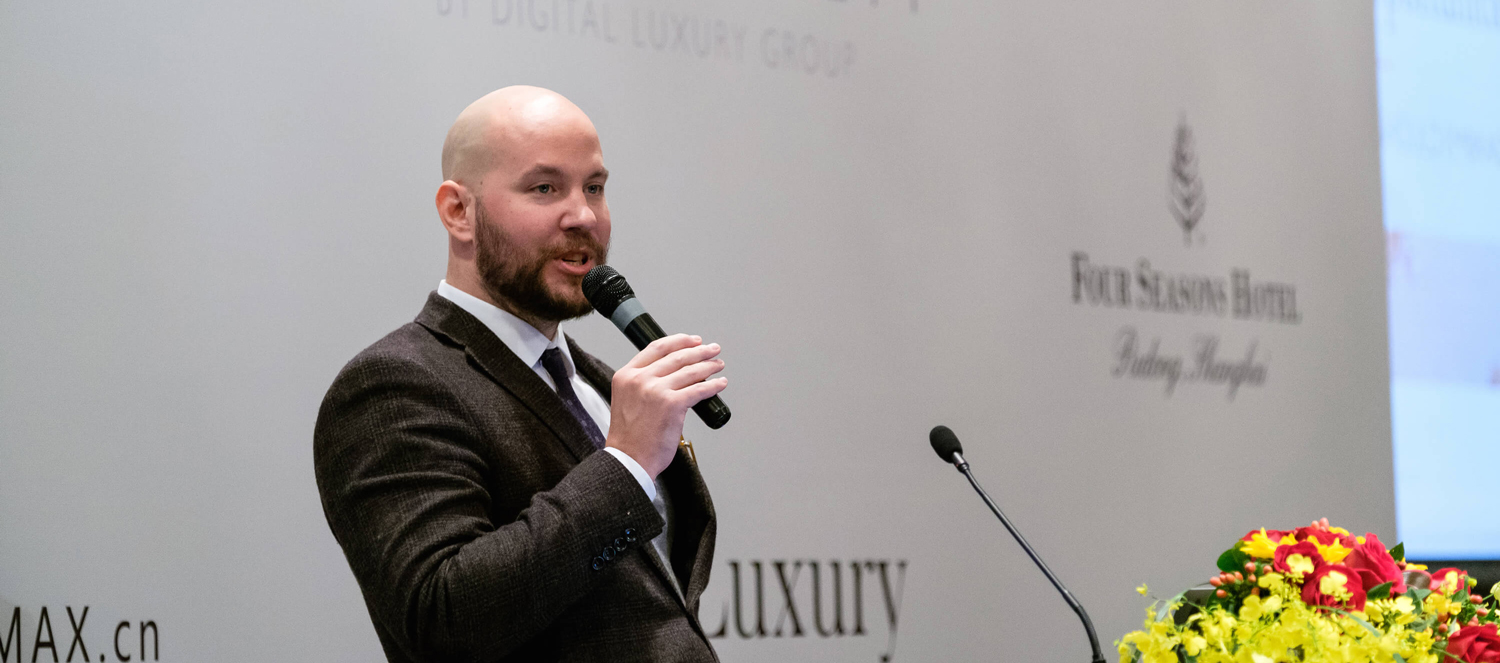
Speaker: Pablo Mauron, Partner & Managing Director, Digital Luxury Group, China
“Augmented reality, virtual reality, and livestreaming” are undoubtedly popular terms in 2016. These emerging platforms and technologies are impacting brands’ digital marketing strategy, as they present new opportunities. How should luxury brands take advantage of these new technologies? Pablo Mauron, Partner and Managing Director of Digital Luxury Group in China said, “the millennial generation, which already accounts for 300 million people in China, will be the opportunity for the future. Their way of thinking is more complicated and they want to be inspired; they seek experiences and emotional connection, they’re not just a bystander. As a result, livestreaming has become a medium for them to express themselves.”
Pablo gave specific examples of new technologies being used in China to reach Millenials. In 2016, VR remains in its infancy, so it needs to be clear how a brand plans to use it and bring new experiences to consumers. In addition to using new technologies to promote brands, strong content remains critical. Angelababy, leading Chinese actress and ambassador for beauty brand Maybelline, has taken part in a livestreaming as has Montblanc as part of their event strategy. It has been noted that 300,000 VR sets were sold on Taobao last month and that companies like TMall and Mei.com are already experimenting.
Watch Pablo's presentation video and download the PDF
Successful Content Strategies and Experience On E-Commerce Platforms

Speaker: Thibault Villet, Co-Founder & CEO, Mei.com
As a luxury fashion e-commerce platform, Mei.com aims to enrich the online experience of its members and fashionable target audience. With a team of 20 editors, Mei.com launched a weekly e-magazine in October 2015 that has been inspiring members with content covering 20 different lifestyle areas. "We want to deliver customized and targeted content for all our different customers, and in turn help to drive sales," said Thibault Villet, Co-Founder and CEO of Mei.com.
This year, Mei.com launched a number of interactive activities, including their Tmall collaboration on October 23rd that live-streamed a major fashion show, receiving over 5,000,000 interactions from their online audiences. Not only did the event support the brand’s image, but it also achieved a quick return on investment and immediately sold 65% of the products.
Watch Thibault Villet's presentation video and download the PDF
Chinese Travelers: Key Learnings After One Year of WeChat CRM

Speakers: John Hamilton, Director of Marketing Communications APAC, Four Seasons Hotels; Pablo Mauron, Digital Luxury Group
In the hospitality industry, a personalized experience is the most meaningful one. A year ago, Digital Luxury Group in China began to set the strategy for Four Seasons Hotels & Resorts to get started on its social customer relationship management activities. At the time, Four Seasons and DLG had to consider the challenges with using social media, overcoming the difficulty of understanding consumer demands to drive business while using a short message service, limited community reach, and one-way communication. A year later, with trial and error and optimization, Four Seasons Hotels is able to create customized content, track and analyze customer behaviors, and more through WeChat, gaining meaningful data that derives more customer insight to drive growth.
As an example, Four Seasons recognized that they couldn’t underestimate the power of smaller, and more local, communities, such as those specifically interested by Four Seasons’ dining and nightlife options. With that in mind, DLG began to tag users based on their WeChat reading habits which allowed the ability to better collect valuable data about their audience.
Watch John Hamilton's presentation video and download the PDF
An Analysis: Digital Natives and Their Preference for Watches
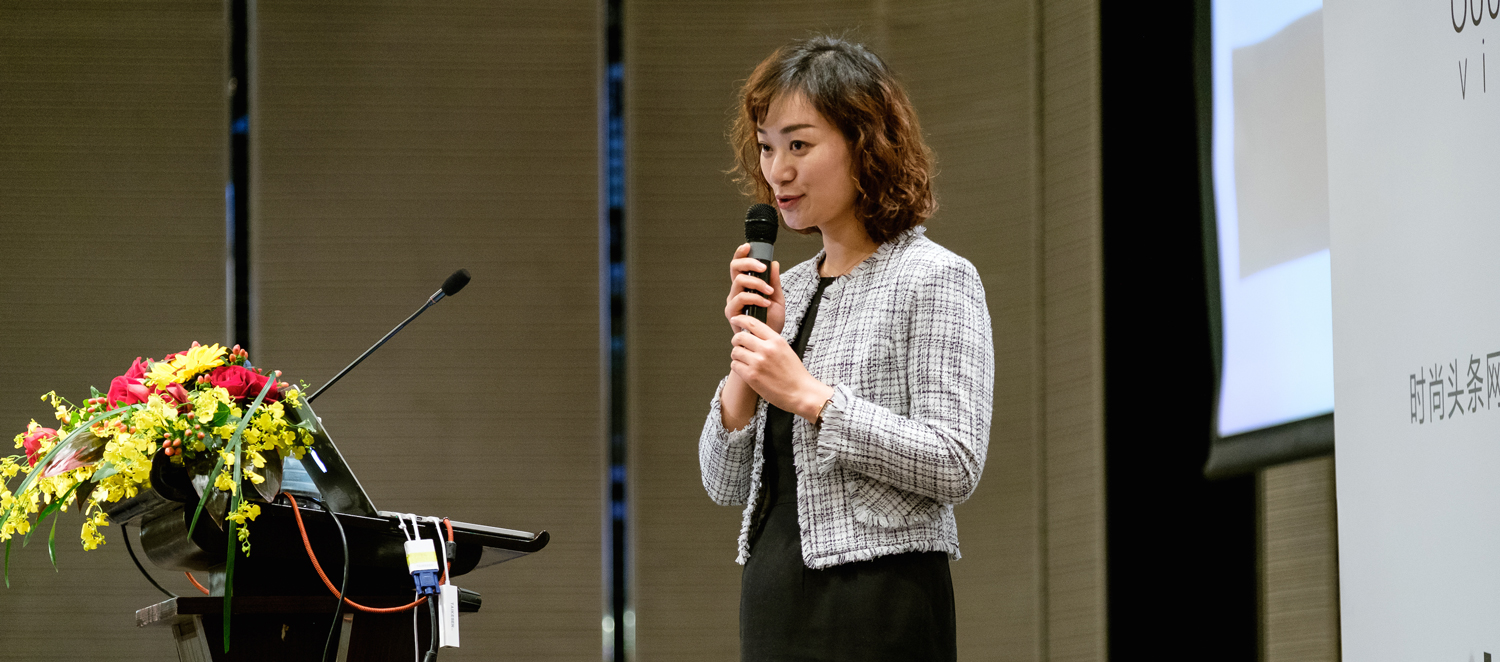
Speaker: Wan (Grace) Zhang, Baidu, General Manager of East China region
According to an exclusive report by Baidu to Luxury Society Keynote attendees, findings show that millennials are becoming the predominant consumer purchasing group. Wan (Grace) Zhang, General Manager of Baidu in East China, shared more about the current state of “Post 90’s” (those born between 1990 and 2000) individuals including their points of interest and data specifically related to luxury goods. Among their favorite searched watch brands, Cartier ranks first. Cartier’s lead is heavily linked to their chosen spokesperson, Lu Han, a well known singer and actor that is well loved among a younger audience. Zhang concluded, that “data unveils what consumers are looking for, and technology allows us to better communicate with them.”
Watch Wan Zhang's presentation video and download the PDF
Discussion Panel: Embracing Change: How Luxury Brands Need to Adapt and Adopt New Technologies
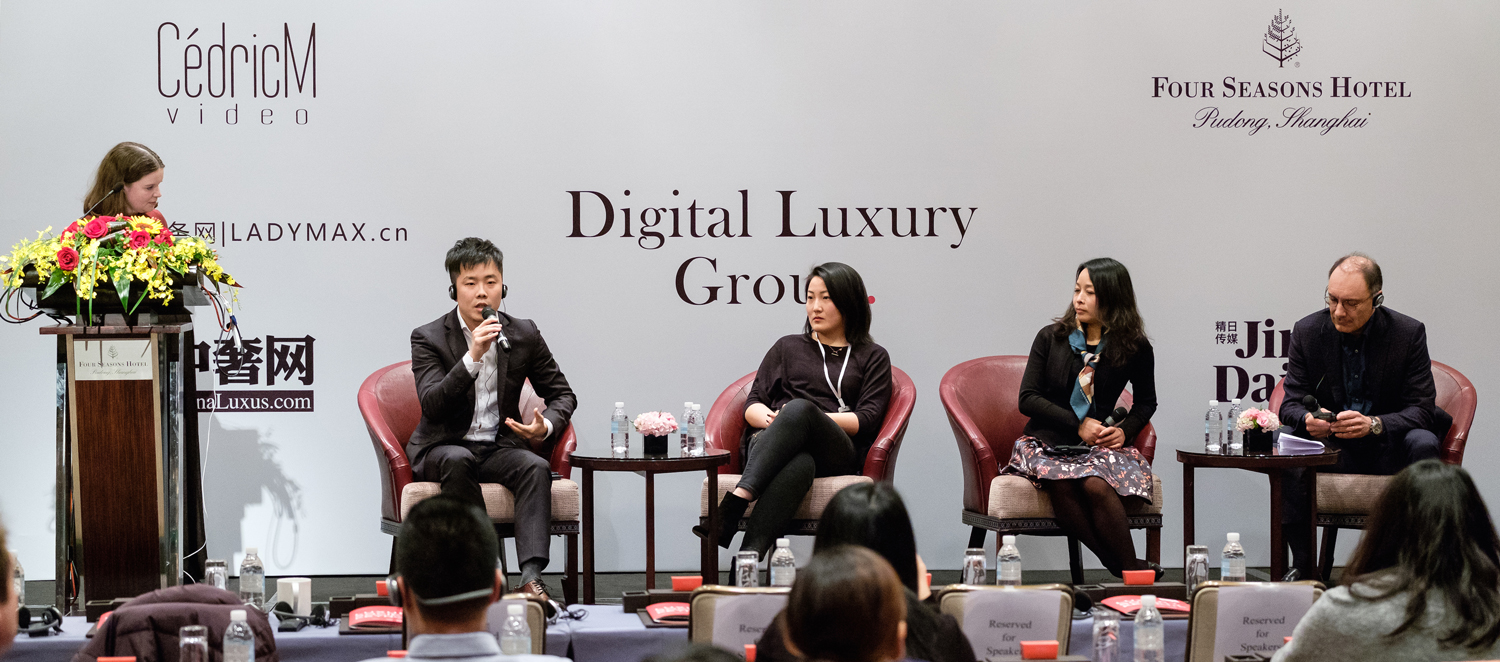
Speakers: Thibaut Villet, Co-Founder & CEO, Mei.com; Jenny Tu, VP of Sales, Yixia Tech; Oosha Zheng, Client Engagement Director, Blackbow; Di Fu, Senior Project Manager, Baidu
Moderated by: Casey Hall, Writer, Editor, & Author, Women’s Wear Daily
Joining the stage was a panel of speakers used to thinking and strategizing about the role of technology in luxury brand communications: Jenny Tu of Yixia Tech, maker of YiZhiBo, a leading livestreaming platform, Di Fu from Baidu, whose main focus is research on augmented reality technologies, Oosha Zheng of Blackbow, an organization that builds interactive experiences for its clients, and Thibault Villet, who is at the help of a top luxury fashion player.
Key insights uncovered by the panel:
Especially in China, young customers truly embrace new technology
AR/VR is a new technology and is a platform for carrying digital content. Leveraging on the new technologies to build engaging content is the key challenge for the luxury brands.
VR live streaming has a real opportunity to success. If the wearable VR devices can solve the dizziness issues, more and more people will use VR to watch live streaming.
- Luxury brands tend to work with celebrities or KOLs to do the live streaming, because their followers are young and active on these social platforms, they are the targeted audiences for the brand
Discussion Panel: State of the E-Commerce Landscape in China

Speaker: Arthur Zhang, CEO, UCO Cosmetics; Vanessa Qian, Digital Manager, Sephora China; Robin Kerawala, Kung Fu Data
Despite the fact that E-Commerce in China is dominated by a few key players, the landscape is incredibly rich and complex. To illustrate this fact and shed some light on this enormous industry, speakers from very different horizons joined the stage. Vanessa Qian, Digital Manager at Sephora China, Arthur Zhang, Co-Founder & Chairman of UCO.com, a leading online retailer for premium cosmetic brands, and Robin Kerawala from Kung Fu Data, an ecommerce partner specializing in data analytics.
Key insights uncovered by the panel:
Though there is a lot of discussion about live broadcasting, not all brands see it converting to online sales, though it does offer good brand exposure
Luxury and premium brands are still faced with the challenge of massive parallel import, or “daigou,” in China, which may have played a role in Coach’s exit from Tmall this year
For many brands, particularly beauty brands like Estee Lauder, Clarins, and L’Occitane, 30% of their annual revenues can be made on Single’s Day (each November 11th in China, and known locally as 11.11), some even higher
- The new explanation of “e-commerce is dead” is that early stage e-commerce models (simply providing a platform to sell products online) doesn’t work anymore, luxury brands need to utilize new technologies and offer different experiences to the consumers.
A Conversation with Qing Dai, Commercial Director, Easy Entertainment
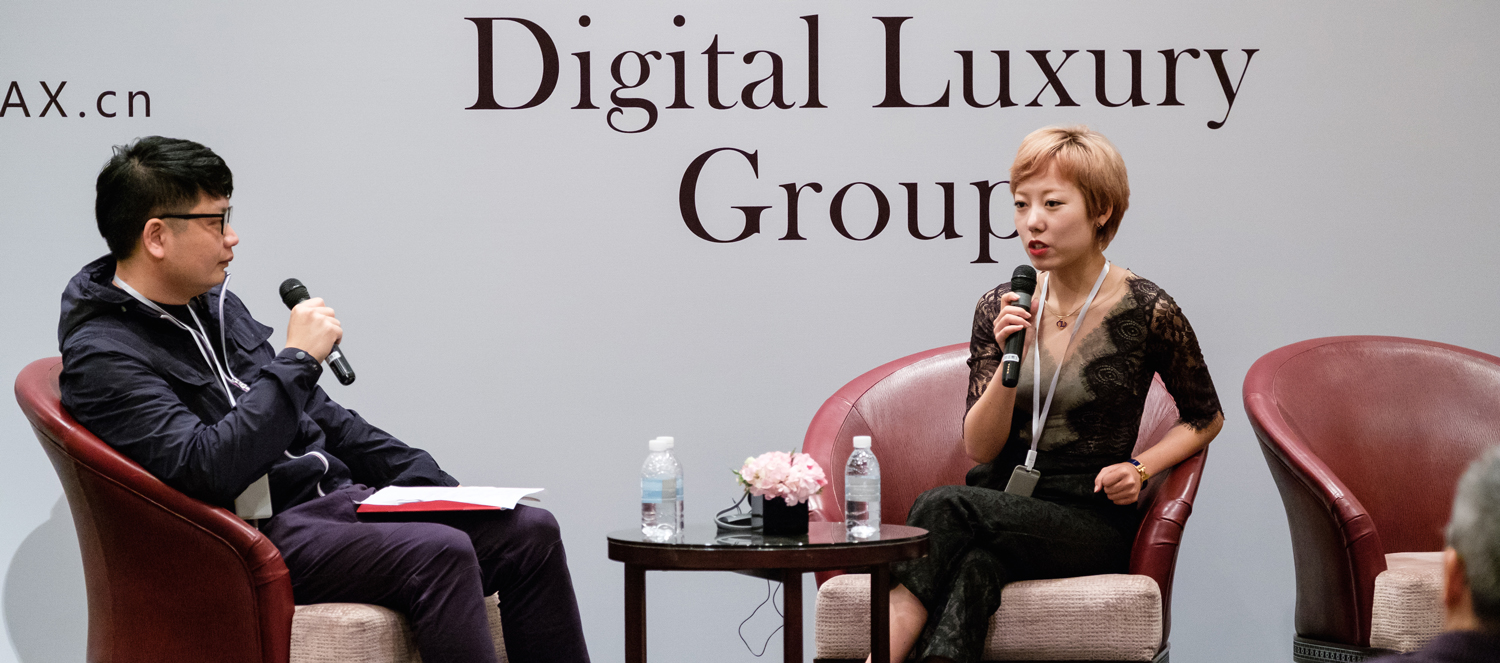
Moderated by: Lien Li, Ladymax
Easy Entertainment is a leading celebrity agent in China, working with famous celebrities on their partnerships with luxury brands. One of the most recent success stories for Easy Entertainment has been the collaboration between Lu Han and Cartier, easily one of the most talked about personalities this year. Qing Dai, Commercial Director, joined a conversation on stage with Lien Li from media Ladymax.
Key insights uncovered:
When a brand decides which celebrity to work with, the key factor taken into consideration is the celebrity’s social data. (Weibo followers and interactions)
Also taken into consideration is whether the celebrity’s personal image follower base matches to the brand targeted audiences.
- There will be more and more celebrity endorsements in China because when done right the results are there. Celebrities drive quality traffic to the e-commerce platform with a sales conversion
A Conversation with Nikolaj Schnoor, Managing Director Asia Pacific, Linberg Eyewear
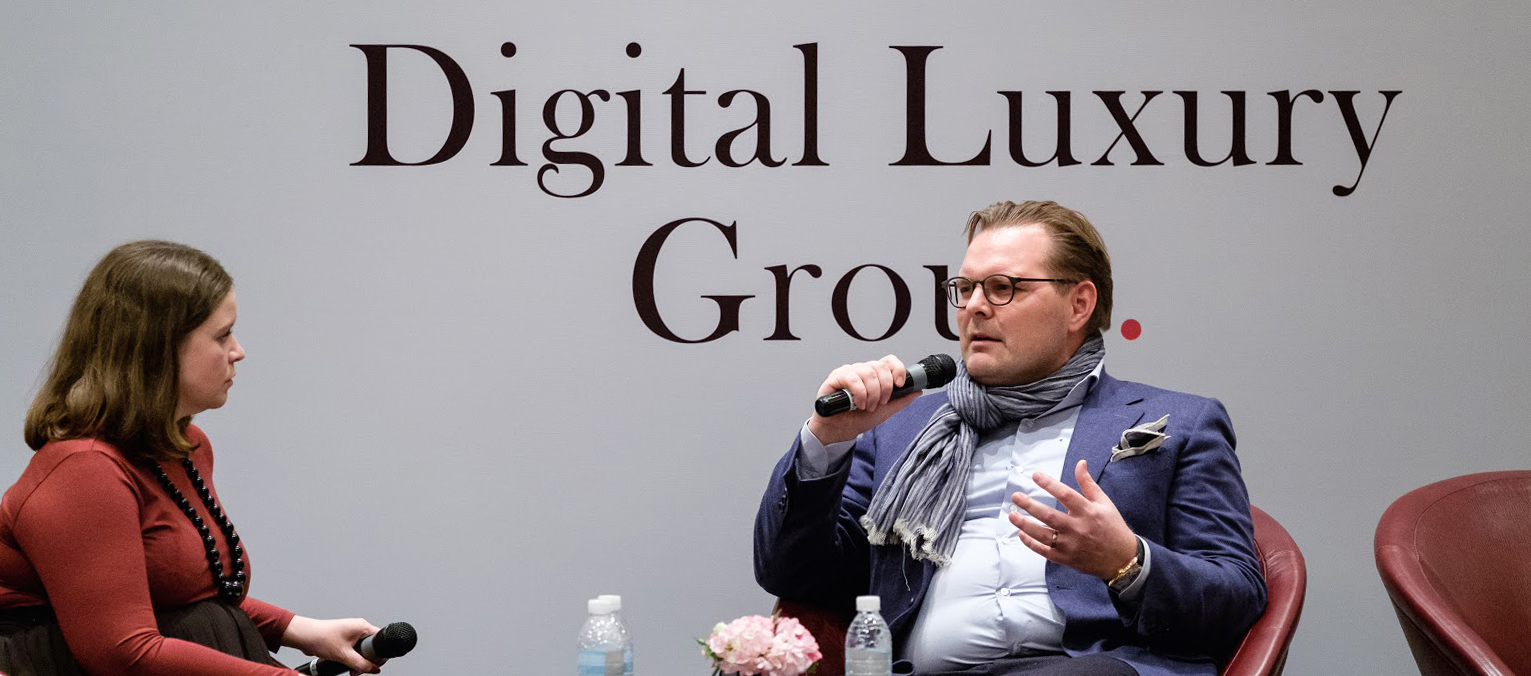
Moderated by: Casey Hall, Writer, Editor, & Author, Women’s Wear Daily
Nikolaj Schnoor has been living and working in China for a considerable amount of time. In his role as Managing Director of Lindberg, the famous Danish eyewear brand, he spoke on stage with Casey Hall of Women’s Wear Daily to share his viewpoint as a top manager on what all the trends mean, and if and how they get adopted and implemented.
Key insights shared by Nikolaj:
Like many smaller brands with a headquarters in Europe, Lindberg still sometimes struggles at the basics like translation and localization. There is still a lot of time taken going back and forth between markets and headquarters.
E-Commerce is also still a challenge for Lindberg. They are minimizing their efforts there in order to provide a better customer experience in-store, where they can be measured and customized.
Young Chinese like to follow the trends, both in products and communication channels, and Lindberg is working to balance jumping on the trends while still maintaining a best-in-class customer experience – not an easy feat.
Stay tuned for details on downloading available presentations and watching videos directly from the event.










